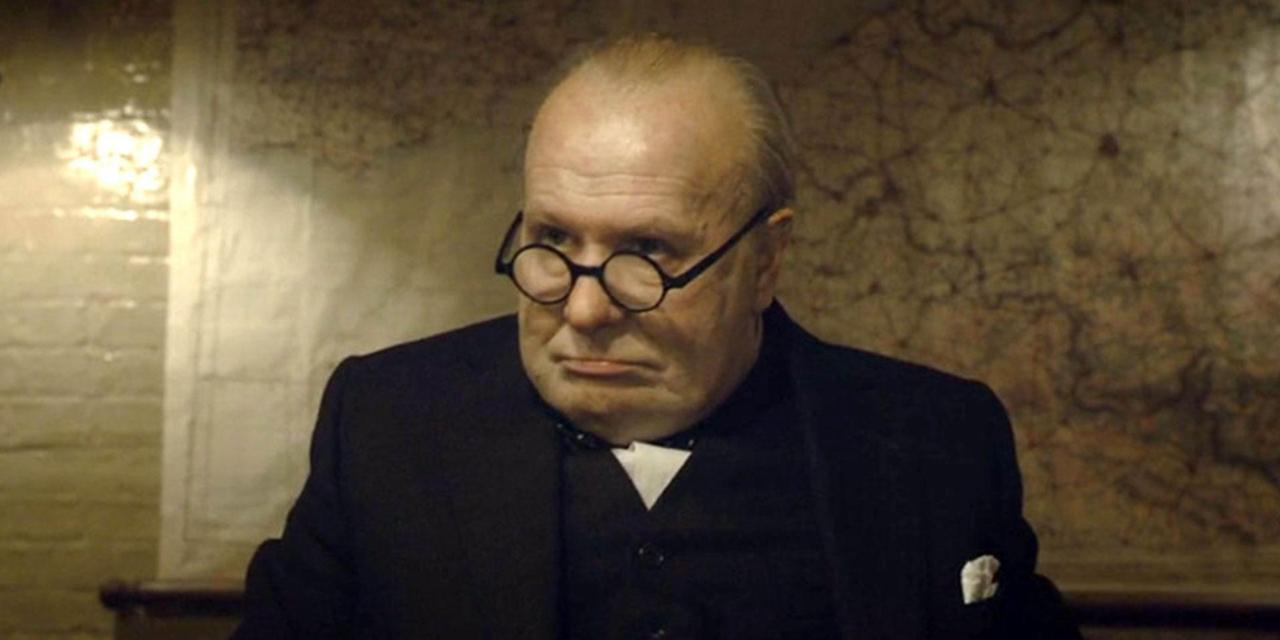Joe Wright’s Darkest Hour charts Winston Churchill’s first month in Downing Street in 1940, and whilst it is a well acted, emotional and engaging film, it is also intensely problematic. Darkest Hour is a film that presents Churchill as a “warts and all” hero, glorifying him as it presents a manipulated view of history that conveniently forgets his wrongdoings.
Most historical films are inaccurate in some way, some more than others, however the issue with Darkest Hour is not its inaccuracies, but the way that these inaccuracies, paradoxically, feel authentic as they present the film’s leading figure in a particular way. Gary Oldman’s Churchill is brash, angry and rude at various points within the film, yet in addition to this the viewer is also bound to find him sympathetic, perhaps even lovable. And this is where the problematic nature of the film lies; whilst the decision to put Churchill on the £5 note in 2016 indicate that many see him as hero, its important not to forget the intensely racist remarks – and acts – that he made over the course of his life. Churchill referred to the Kikuyu people of Kenya as “Brutish children”, described Indians as “a beastly people with a beastly religion”, and, when discussing American Indians and black Australian natives stated: “I do not admit that a wrong has been done to these people by the fact that a stronger race, a higher-grade race…has come in and taken their place”. Thus, the reality of Churchill compared with how Darkest Hour presents him is where the problematic nature of the film lies.
One of the most poignant, and popular, scenes in the film is the one set in the London Underground. The scene sees Churchill ending up in a train carriage filled with members of the British public to whom he talks with, asking each person their name and whether or not he should agree to sign a peace treaty with Nazi Germany, the central problem of the film. Great problems lie in the ending of the scene, as it culminates in Churchill reciting words from Macaulay’s Lays of Ancient Rome to the carriage, his quote being finished by a black Londoner with whom Churchill shakes hands with before departing the carriage. This scene is entirely falsified, yet has been widely lauded as one of the best – and most important – scenes in the film as it is shown as directly motivating Churchill to refuse the deal. It is undeniable that the scene is emotional and heartwarming, yet this is exactly why it makes me so uncomfortable; if we consider the reality of Churchill and his beliefs, it seems almost offensive to glorify him in this way, to present him as a “man of the people” when he defended the use of concentration gamps in South Africa and poisonous gas against those he deemed “uncivilised”.
Despite these manipulations of the truth, Darkest Hour is not a bad film; it is one with a stellar cast and a stand out performance from Gary Oldman who portrays a Churchill that is volatile, funny, conflicted and caring all at the same time. However, it is a film that glorifies Churchill under false pretences, “forgetting” the racist reality of his beliefs which makes for, at times, an uncomfortable viewing.
Hannah Stokes
(Image courtesy of BBC)

